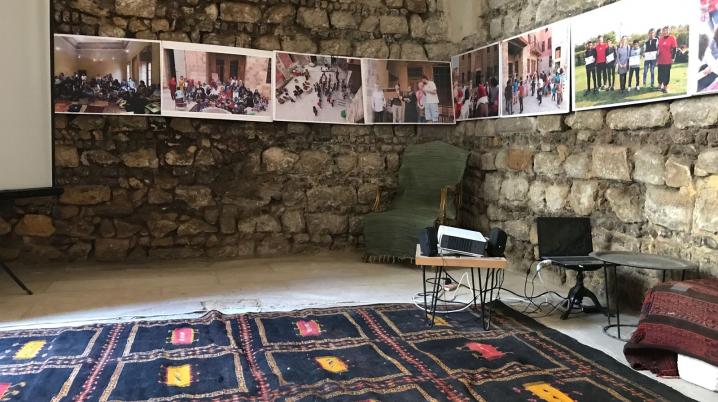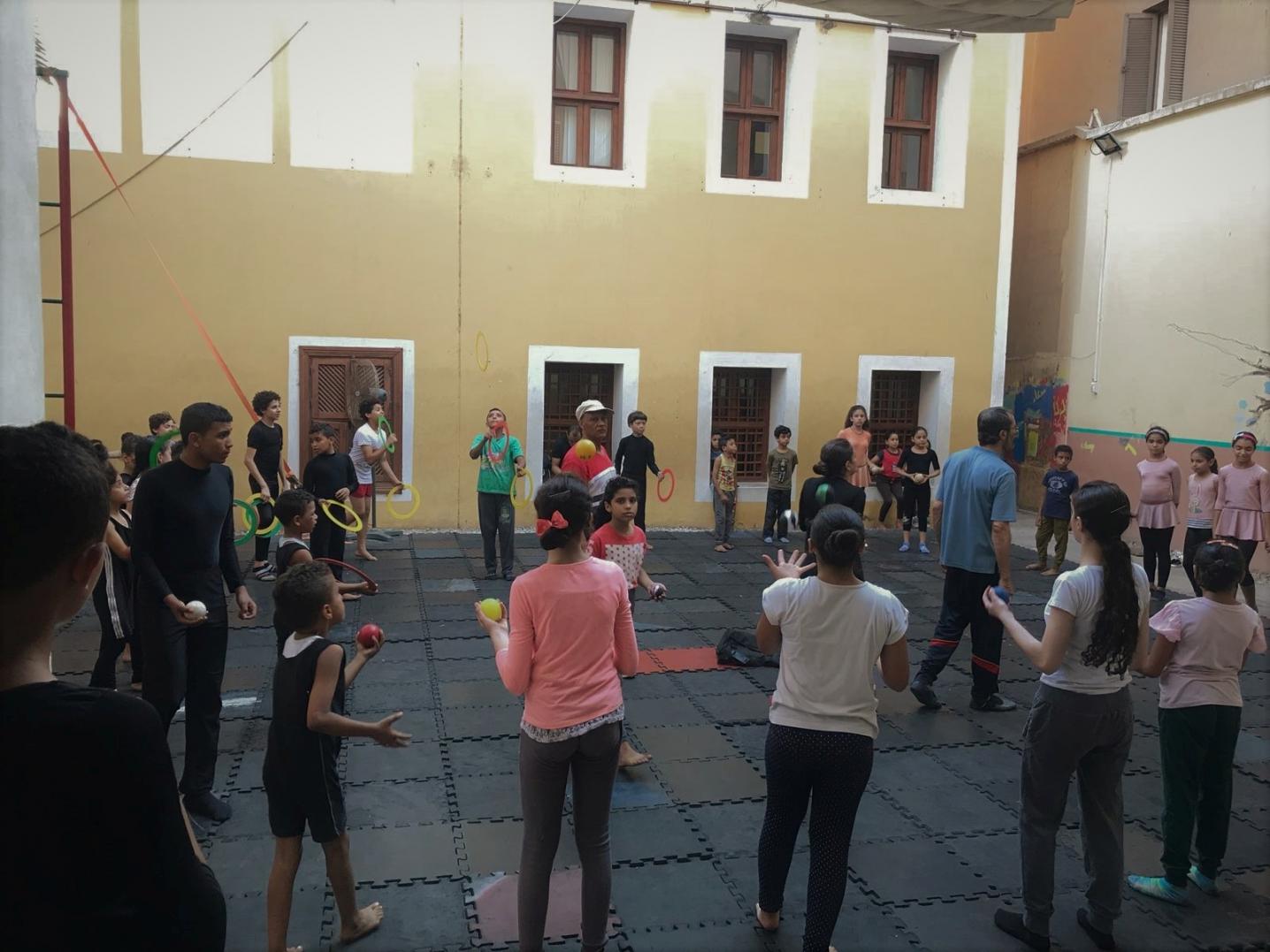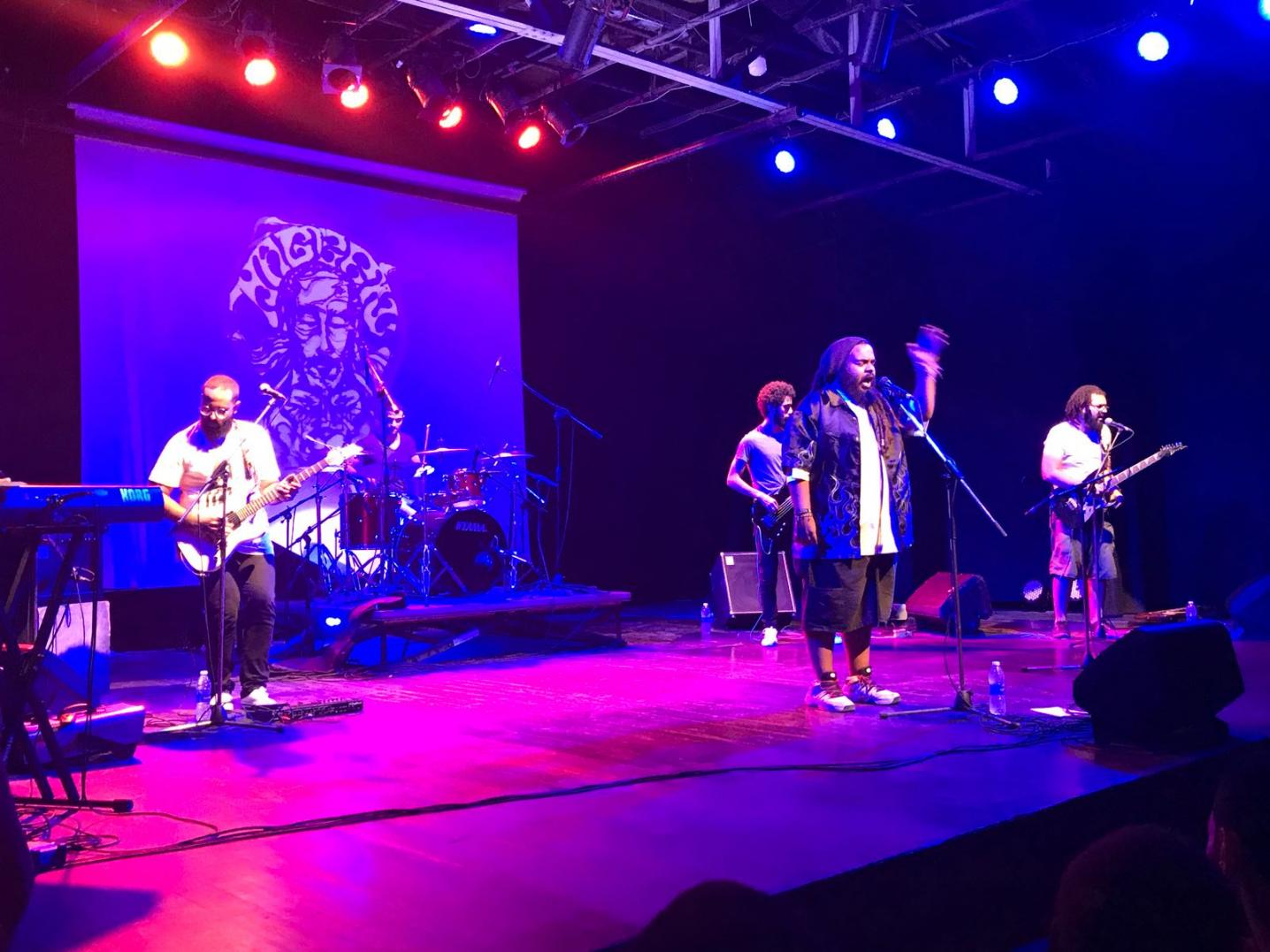
International Cultural Policy in Egypt: What’s in it for us?
By Willemijn Hellenthal
This article is written as a result of conducted master's research on Dutch cultural policy as implemented in Egypt. The findings of this research are presented in a master’s thesis by the writer at the Radboud University of Nijmegen.
"Everyone has the right freely to participate in the cultural life of the community, to enjoy the arts and to share in scientific advancement and its benefits." (UDHR, art. 27)
Egypt is one of the countries that has been selected for the 2017-2020 framework of Dutch International Cultural Policy (ICP), targeting local societal development through cultural projects.[1] Aiming to contribute to citizens’ ‘right to culture’ as described in the Universal Declaration of Human Rights, the Dutch government states that freedom of artistic expression should be taken care of in every society, so that a country’s cultural sector can flourish and be of significance to that society.
Objective II of Dutch ICP is exercised by funding local cultural projects through the Dutch embassy in Egypt, Morocco, Turkey and Russia. Cultural projects that are part of this policy vary from local cinemas that broadcast both European and local movies, to a local theatre incubator that educates different theatre troupes involving young artists. One could also think of projects that embrace dance, heritage and storytelling. However, cultural collaboration between The Netherlands and a country in the so-called ‘ring around Europe’ has, besides many strengths, also its limits, and this article hopes to shed some light on them.
Mutual benefit in cultural collaboration?
In the overall field of international development relations, most attention goes to economic development, which is generally ruled by the paradigm of ‘mutual benefit’. Economic development in a foreign country stimulates the domestic economy as well, and the interests of both countries seem to fully align. But what about cultural development? What is the point of supporting cultural projects in the context of international development? Can this be in the interest of The Netherlands? And what are the potential pitfalls with interfering in a foreign country’s own cultural sector?
Why international cultural support
The world has recently learned that the famous novelist Alaa Al-Aswany was sued for ‘insulting’ the Egyptian state, and singer Sherine Abdel-Wahab detained for ‘insulting’ the Nile river. The imprisoning of Rami Sidky – who was a student in Amsterdam and accused unjustly of a contribution to a ‘satirical song’ about Egypt’s president – has reached Dutch national news. And while Egypt’s president, Abdel Fatah al-Sisi, has been changing the constitution and arranging the continuation of his presidency until at least 2030, the reports of international organizations [2] have all revealed that the increased political repression has alarming effects on Egypt’s cultural sector, the upholding of human rights and the freedom of press.
The launch of a 2020-2030 development strategy for Egypt by its government was steeped in promises for improvement, also in the cultural sector – seemingly advocating for ‘cultural justice’. But in practice, it seems that Egypt’s cultural sector is becoming more and more state-controlled. It can be concluded that international support for Egypt’s artists is needed, considering Egypt’s shrinking political freedom and the lack of cultural infrastructure and funding. Building the cultural sector in Egypt becomes a development goal in itself, because a well-functioning and independent cultural sector is a citizens’ right and a prerequisite for the wellbeing of a society.

‘What’s in it for us?’
When talking about supporting cultural projects in the ring around Europe, one could ask: what’s in it for us? But mind you, this question cuts both ways: it is a question that can be asked by both a Dutch official and an Egyptian cultural actor. In 2016 a member of the Dutch parliament (Van Veen, VVD) asked this very question, referring to the supposed lack of opportunities for the Dutch cultural sector in collaborating with the countries that were included in objective II of Dutch ICP.[3] The purposes of the policy were always considered to be twofold: supporting the cultural sector of countries in the ring around Europe should benefit both local society ánd The Netherlands directly.
Dutch interests
It remains ambiguous, however, where the emphasis of this desired impact lies: who are indeed benefiting from the cultural injection? Can a country foster cultural development in another country while following its own interests? According to the adjustment of Dutch ICP by the parliament, cultural collaboration with the countries involved in the policy should now contain a Dutch ‘component’. It is not made specific whether this component should consist of a concrete collaboration between a Dutch artist and a local cultural actor, or the inclusion of Dutch elements in cultural production.
Still, this would mean that the Dutch government directly interferes in the cultural sector of another country, aiming to stimulate the Dutch cultural sector and create local societal impact that fits Dutch foreign interests as well. This is based on a fundamental misunderstanding of the function of culture in society: culture is made, enjoyed and reflected upon by its own society first and foremost, in order to function as a ‘mirror’ to that society. When it comes to cultural development in the ring around Europe, a policy framework focusing on achieving impact in the direct interest of the donor country is therefore misguided and untenable.
The cultural development of a country like Egypt can only be fostered and carried out by its own society. Does the Egyptian counterpart in this collaboration have anything to say about the purposes of culture in his or her own society? If indeed all cultural support for Egypt would need to be in the interest of the Netherlands, we can understand why an Egyptian artist could ask the same question that was asked by the Dutch parliament: what’s in it for us?
Renewed cultural collaboration
Lately there has been a vivid discussion in the Dutch development sector about sharing the ownership of the development agenda with the civil society of development countries themselves.[4] This recent step in the journey towards a true reciprocal relation in development cooperation offers some additional opportunities, especially when it comes to cultural development. Giving local counterparts the control over international support in the cultural sector of their own country would do justice to the essence of culture: it is always linked to a country’s history, traditions, strengths and limits, and above all to its people.
More importantly, in this way both the Netherlands and the countries involved in the Dutch ICP could benefit from cultural support. In a country like Egypt, the very existence of a critical, independent cultural sector could already generate great impact on society. By engaging youth, culture helps fostering social cohesion and is able to provide a ‘mirror’ for society. This is already rightly addressed in the current policy framework of Objective II.
Still, it remains questionable if the Dutch government perceives the value of culture in foreign society as sufficient for an investment that may not offer direct and immediate benefits for Dutch foreign interests. Yet, a good cultural sector contributes to future prospects of young people and addresses human rights, which are all long-term goals of Dutch foreign policy and considered indispensable considering the growth of authoritarian regimes in the region. And a country’s cultural sector flourishes even better when it is free from national political repression on the one hand ánd foreign meddling on the other.
Unresolved issues
Although rethinking the question of ownership in international cultural relations is certainly a step in the right direction, international funding in another country’s cultural sector still comes with some as yet still underexposed implications. Especially in the context of Egypt – where a well functioning cultural infrastructure cannot be taken for granted – international support may lead to undesirable power balances. And international funding remains earmarked.
Wittingly or unwittingly, international partners could impose certain ideas about culture and its intrinsic and instrumental value on Egyptian cultural actors, with potentially troublesome results. Think of donors supporting heritage preservation without considering locally embedded functions: while restoring an old mosque for the sake of aesthetics, they tear down the shoe shop inside that played a role in the local community. Heritage is not just the ‘wonders of the world’, but only comes to life when it is about ownership by and engagement with its people.
Also, calls for funding can be biased, already assuming certain societal problems – like radicalization, violence or societal tensions – and proposing fixed solutions to those problems, like democratization, particular human rights and progressive thinking. Yet in fact, societal development should be aimed at the local setting, not made functional for international donors. As for the transformative power of culture, we should ask ourselves: do we really get to know Egypt by only supporting its cinemas if they broadcast European movies as well? Or should we refrain from creating a Western-oriented cultural sector in a country that lacks the freedom and infrastructure to present its own image to the world?

Culture as a mirror for society
Working towards societal development by cultural means is particularly sensitive for this pitfall, because governing cultural projects in another country touches the identity of this country directly. It is important that Egyptian cultural actors experience the freedom of self-definition, even if they are funded by foreign parties. These donors indeed have a great responsibility when it comes to fostering cultural justice in Egypt: what kind of cultural activities should be supported, in order to create the infrastructure in Egypt that enables different cultural actors to have an equal chance at telling the story of their country?
This especially holds for geographical differences in the country – between cultural hubs like Cairo and more traditional southern governorates of Egypt – as well as for societal stratification: differences in culture between traditional and progressive Egyptians. We should ask ourselves: does international funding only lead to a reinforcement of blueprint ideas of the international community about Egyptian culture and the desired societal development, all based on a biased understanding of Egyptian society? Culture can only be a mirror for society if it truly is a product of that society in the first place. The best international support can do therefore, is only to facilitate.
The future of international cultural development
International support for cultural development in countries where citizens’ right to culture is not sufficient should provide a locally embedded platform for artistic expression. This way, it is the intrinsic value of arts and culture that comes first and only subsequently makes instrumental value possible. In the case of Dutch-Egyptian collaboration, policy and practice meet in cultural projects that engage youth in Egyptian society, working towards increased social cohesion. These projects are likely to have long-term benefits for both local society and international donors.
Young people in Egypt indeed do have a voice, and culture is a very powerful way to make sure that the stories of the Egyptian people are heard, by Egyptians themselves but also beyond its national borders. The real benefits of international cultural support in Egypt can be found in the lives of individual Egyptians and the development of a functioning, independent cultural sector in a country where cultural freedom is under siege. Hence, international support should be only of a facilitative kind, and support that which benefits local organizations and artists the most. This way, the ownership of international cultural development can tilt from international donors to local parties, which are the only ones that know what is best for their country.
Long-term value
As this article already shows, questioning the value and interest of Dutch-Egyptian cultural collaboration in the context of Dutch ICP might expose a conflict between a development agenda – targeting local goals – and a diplomatic agenda – serving Dutch interests. Since cultural collaboration should transcend the (economic) aid relation that signifies most bilateral or multilateral development cooperation, it is debatable whether this policy belongs under the umbrella of the Minister of Foreign Affairs at all. Serving a development interest rather than diplomatic benefits, International Cultural Policy targeting foreign cultural development seems to naturally harmonize with the objectives beloning to the portfolio of the Minister of Foreign Trade and Development Cooperation.
Yet, notwithstanding the fact that cultural development of a foreign country should not be forced to directly serve Dutch interests, the long-term effects of cultural development in countries like Egypt are indeed real. And in the long run, a flourishing Egyptian society, in which the people have found their voice and can share their stories, can certainly be in the interest of The Netherlands.
This article is written by an external author. Its content does not necessarily reflect the opinion of DutchCulture.
[1] Dutch ICP is carried by three Ministers: The Minister of Foreign Affairs, the Minister of Education, Culture and Science and the Minister of Foreign Trade and Development Cooperation.
[2] e.g. Freedom House, Reporters Without Borders, Amnesty International and the European Cultural Foundation
[3] As a result of this political opposition, all cultural collaboration with Mali, Lebanon and the Palestinian
Territories has ended. Egypt, together with Morocco, Turkey and Russia, have remained in Dutch ICP.

